Sultan Mosque at Kampong Gelam
Kampong Gelam is famous for a variety of different things – delicious food along Haji Lane, rich cultures showcased along Arab Street, and of course, Sultan Mosque. An iconic landmark right smack in the middle of this bustling area, Sultan Mosque a.k.a. Masjid Sultan is an important place of worship for the Muslim community in Singapore.
Whether you’re a frequent visitor of this mosque or have never seen its splendour IRL before, learning about its history and significance will make your visit a whole lot more memorable.
History behind Sultan Mosque
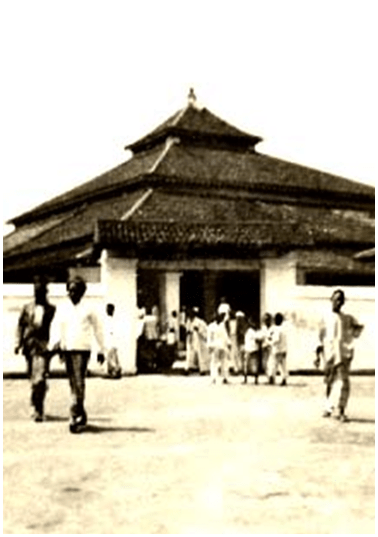
The original Sultan Mosque in 1825
Image credit: tourwithus
While many know the landmark for its striking architecture, Sultan Mosque didn’t look this way when it was first built around 1824. To put this into perspective, Sir Stamford Raffles was actually a key contributor to it’s construction – so you know it’s old.
The original Masjid Sultan was mostly built by the East India Company for Sultan Hussein Shah, the very first sultan of Singapore, in order for them to gain sovereign rights to Singapore. The one-storey building with a double-tiered roof remained untouched for over 100 years, giving thousands of Muslims a place of worship during its run.
While 1824’s version of Sultan Mosque may be a far cry from the iconic golden domes and majestic infrastructure we know of today, the building was actually very fitting for its time and was modelled after traditional mosques in Indonesia.
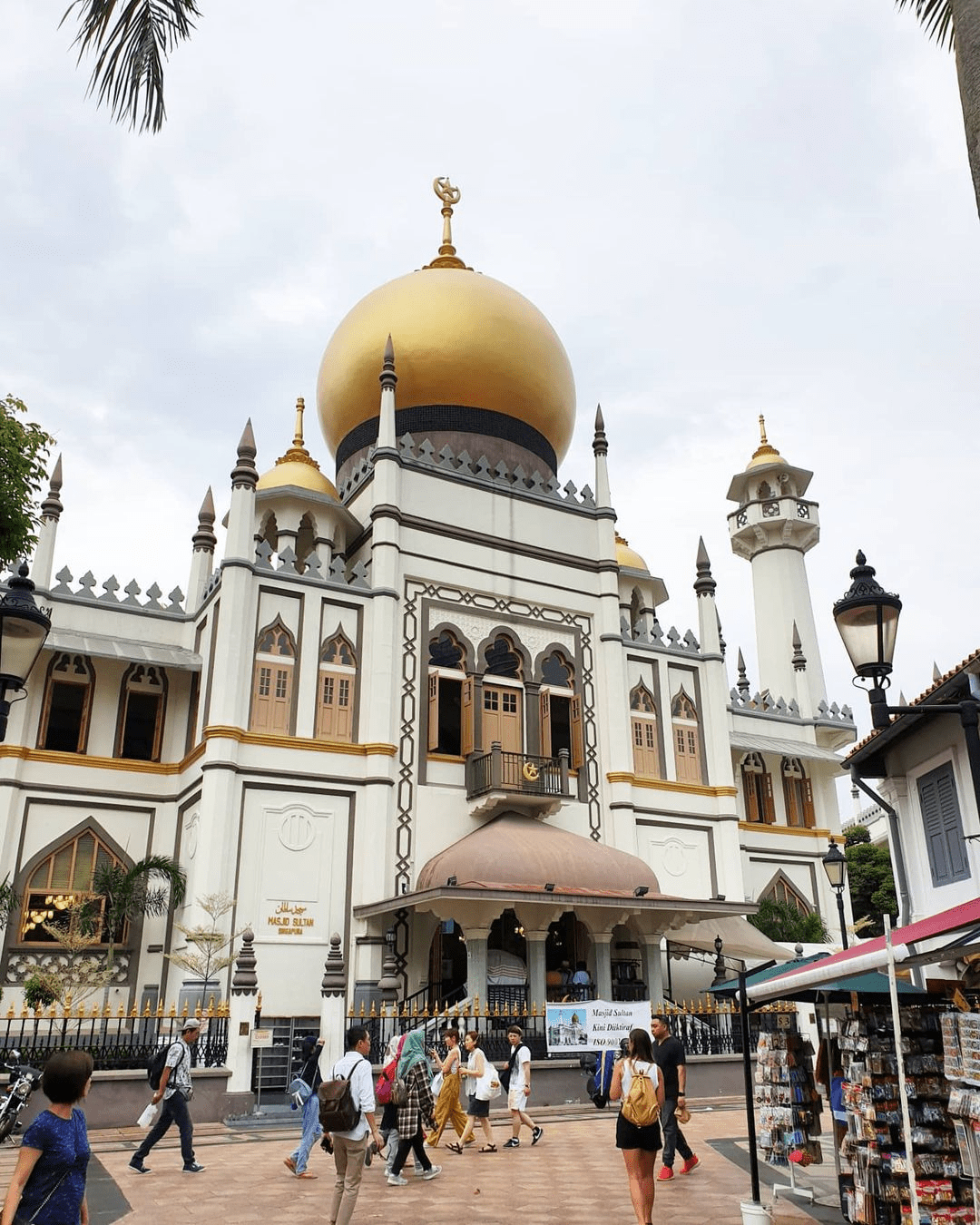
Image credit: @rabindra
By the time a whole century passed, the masjid was in dire need of reconstruction, as you probably can imagine. Designed by Swan and Maclaren Architects and funded by the Muslim community in Singapore, a more modern Indo-Saracenic-style Sultan Mosque was finally opened to the public in 1932.
Exploring Sultan Mosque
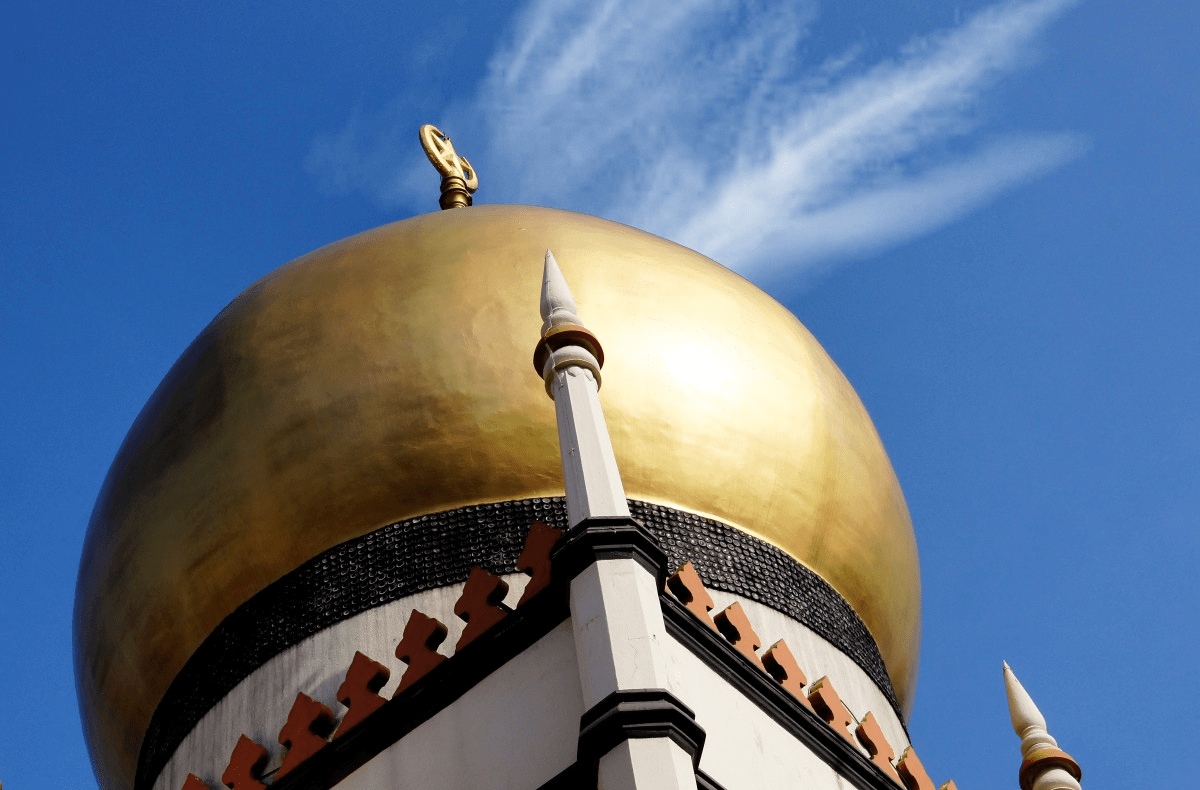
Soya sauce bottle ends were used in the black lining of the domes
Image credit: Public Domain
The architecture of this 200-year-old building is just as intricate as its history, and popping down for a visit will reveal fascinating details of its construction. Properly visible in the daylight, a close inspection of the black dome rims will reveal what looks suspiciously like glistening glass bottle ends.
While the wealthy were able to contribute the monetary funds to build the main bulk of the new mosque, lower-income Muslims were also able to contribute in their own way – through used soya sauce bottles.
The hundreds of bottles that were donated were cut down to their ends and were added as decoration for the lining of the golden domes. This way, all Muslims, regardless of status, were able to pitch in for the construction of this important religious building.
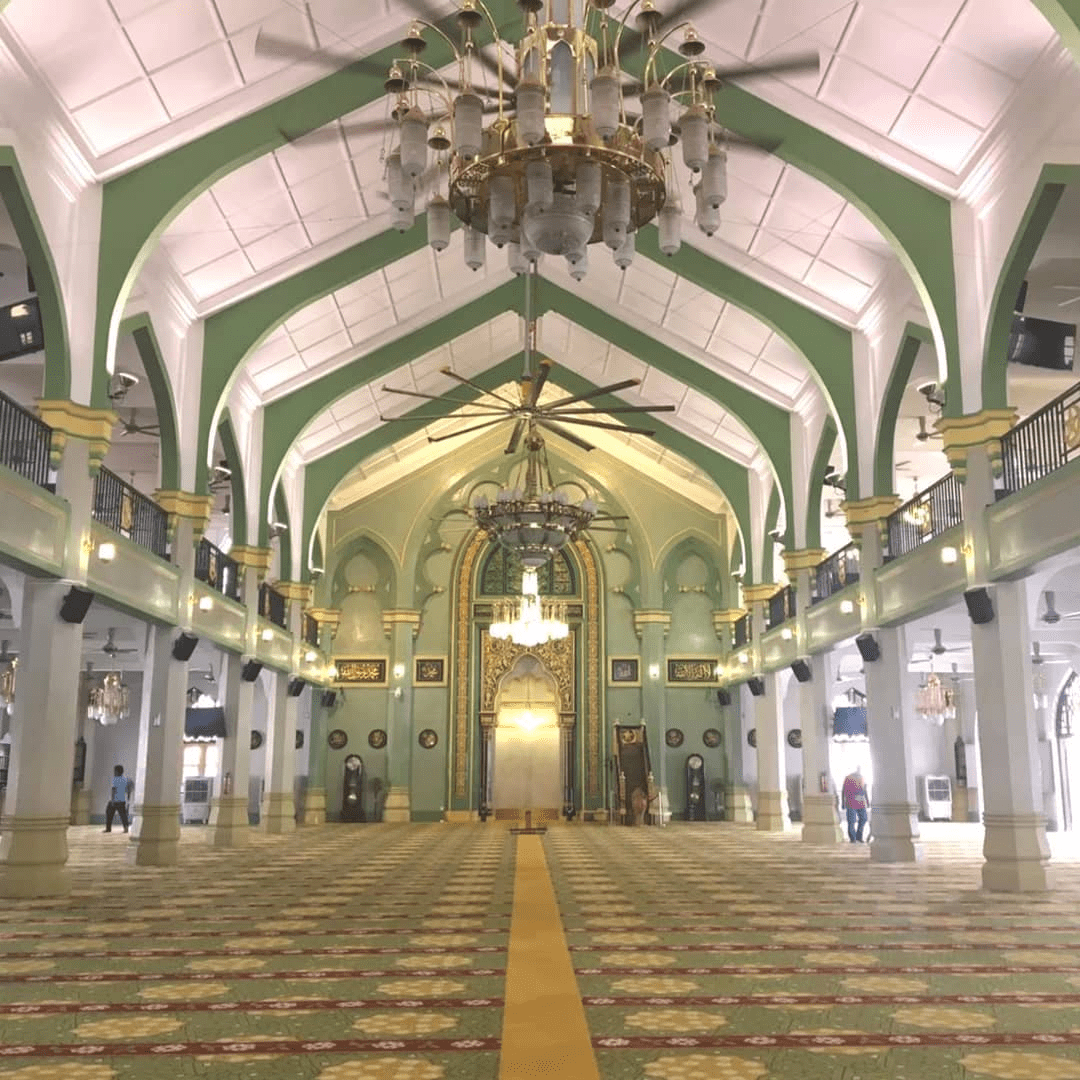
Image credit: @saewanderlust
Not only is the exterior of Masjid Sultan beautifully constructed, but the interior of the mosque is also equally beautiful. The prayer hall can hold up to 5,000 people during mass prayers and takes up two storeys in the building – one for men and one for women.
While most of the mosque is usually open for the public to explore, there’s a hidden mausoleum not many know about that is located under one of the golden domes. Entry to this section of Masjid Sultan is strictly prohibited, as it houses the tombs of Sultan Alauddin Alam Shah and other members of Singapore’s past royal family.
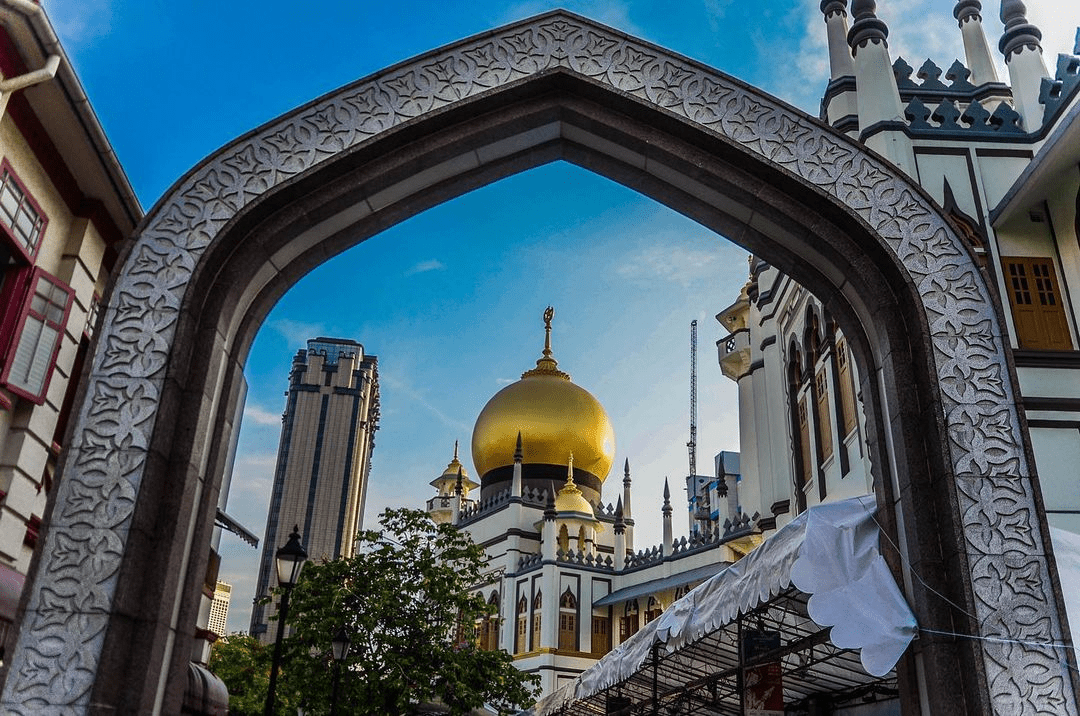
Image credit: @rvshdn.vxf
The mosque is still primarily used as a place of prayer for Muslims in Singapore, but its purposes have also greatly expanded over the years – from hosting Quran recital competitions to being part of our favourite annual Ramadan bazaars. It’s no wonder that so many tourists and pilgrims flock to Sultan Mosque.
If you’re planning to head down by yourself, the mosque even holds guided tours in English, Malay, Chinese, and Japanese, so you can educate yourself on the cultural significance of this important place of worship.
Getting to Sultan Mosque
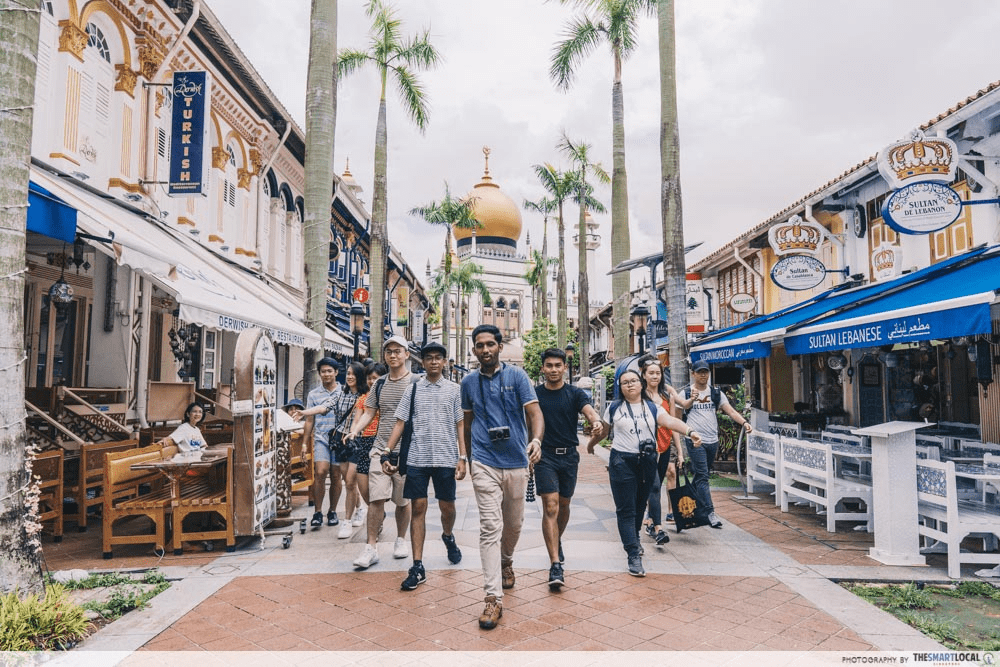
Exploring the unique traditions of Singapore’s rich tapestry of religions can be a fascinating journey. For those interested in learning more about Islam, delving into the details of places such as Sultan Mosque adds depth to our understanding of the cultural diversity that enriches our society.
For more of Singapore’s history, check out:
Cover image adapted from @isnappeditonfilm via Instagram and Siti Hardianti via Google Maps
Article originally published on 13th May 2021. Last updated by Xin Tian Koh on 24th August 2023.
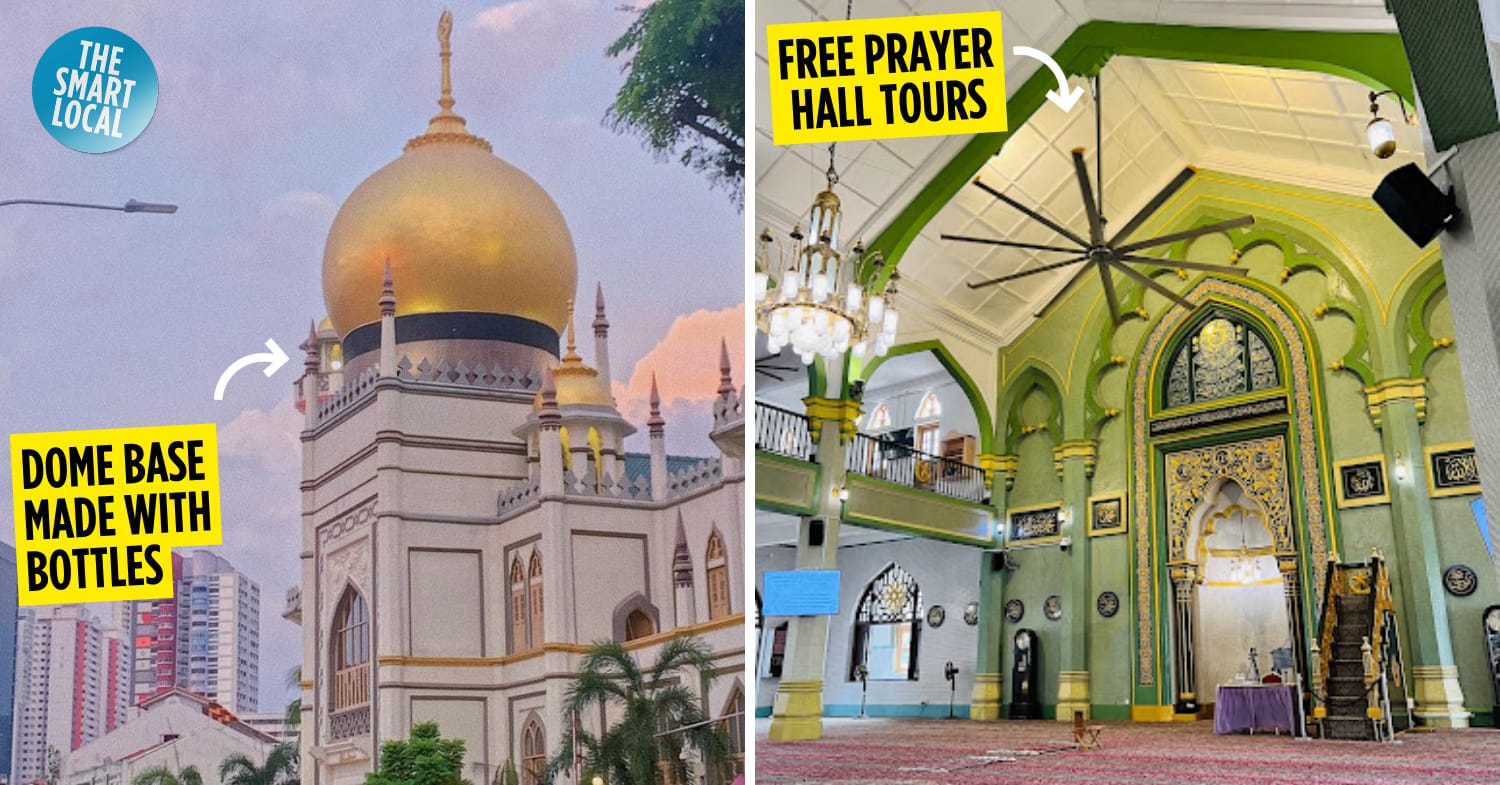
 Sign Up with TSL Connect
Sign Up with TSL Connect